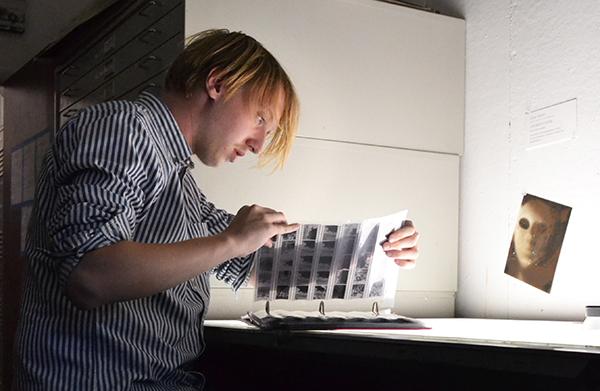GW students can spend all night writing papers and studying at Gelman Library, but Corcoran students panicked last week when they were told they would be locked out of their studio building to work on art projects by 11 p.m.
That posed a problem for students, who would often stay late into the night to finish their work, surrounded by snacks, coffee and art supplies. Some have even slept over in their cramped spaces often cluttered with their photos, sculptures and sketches, working into the late-night hours to finish capstone projects.
Corcoran senior Kelly Chick had been working as a photo lab assistant and overheard her professors discuss the policy change. Chick sent out a student body-wide email, encouraging her peers to flood the inboxes of GW administrators, asking them to change their minds.
“If someone sends an email, they can ignore it, But if the whole school sends emails they can’t ignore that,” Chick said.
Five days later, Interim Corcoran Director Alan Wade sent an email to the entire student body to clarify that they were only moving the cutoff to enter the building up to 11 p.m., and that students who cleared their stay with the head of security would be allowed to work through the night. Students say it was the first Corcoran-wide email they had gotten all year, aside from blasts like GW Today and InfoMail.
That moment of confusion was one of several that dozens of students said has made their transition to GW challenging. During the complicated merger, students say they have not been supported enough after losing the structure they had relied on for information.
Their front office in the main hall of their H Street building, once filled with administrative staff, has been emptied of the people who were once on-call to answer questions about issues ranging from financial aid mishaps, housing and maintenance confusions, and anxieties over lost space inside their building as the National Gallery of Art takes away what was once senior studio space.
GW has tried to implement some easy fixes for students: There’s a temporary help desk in the H Street building, a new website with frequently asked questions and the year began with in-person orientation sessions. Still, much of the heavy lifting to clear up confusion lies with Wade, who has to comb through his inbox to answer or redirect students as messages come in.
Wade said given the timing of the D.C. Superior Court decision on the Corcoran’s petition, the transition is taking place while classes are well underway.
“This has presented challenges and the University is committed to doing everything possible to make the transition as smooth as possible for Corcoran students,” Wade said in an email.
Corcoran Student Association President Camila Rondon said said Wade is responsive to emails, but she said she thought GW could do more to alleviate concerns with proactive mass emails. Only a handful of students are “in the know,” she said, and almost all new information spreads by word of mouth.
“It is frustrating when all these things are happening not knowing what’s going on,” she said.
Confirmation that their popular senior thesis exhibit, called NEXT, would still happen only came from GW last week, amid worries that GW might axe the program, which students often use to make connections with future employers. Now that they know, they’ve already started planning the logo design, though some of the details, like who will direct the show, still need to be ironed out.
Other concerns have ranged from some students losing free Corcoran housing, seeing mysterious charges pop up on financial aid forms and at least three students being redirected to empty Corcoran offices to get questions answered.
The Corcoran also mismanaged transferring about 10 student veterans’ benefits and applied other students’ financial aid late, which put charges on their GW tuition bills.
Senior Eliot Hicks said he once spent two days working through a series of 10 pieces for a project, and was shocked when he heard the rumor that the studios would close early.
“Sometimes you get started in the studio and you don’t want to leave until you’re done,” Hicks said. “Sometimes [inspiration] hits me and I’m there for 12 hours.”
The most alarming part of the news for Hicks: He found out about the change through the email from Chick, a fellow student.
Before the merger, Hicks said, he used to be able to walk up to professors to ask questions. Recently, those same people have referred him to administrators for “basic answers.”
“Now I go through emails and emails, so I’ll just start asking students in the hallway, but they don’t know either,” Hicks said.







